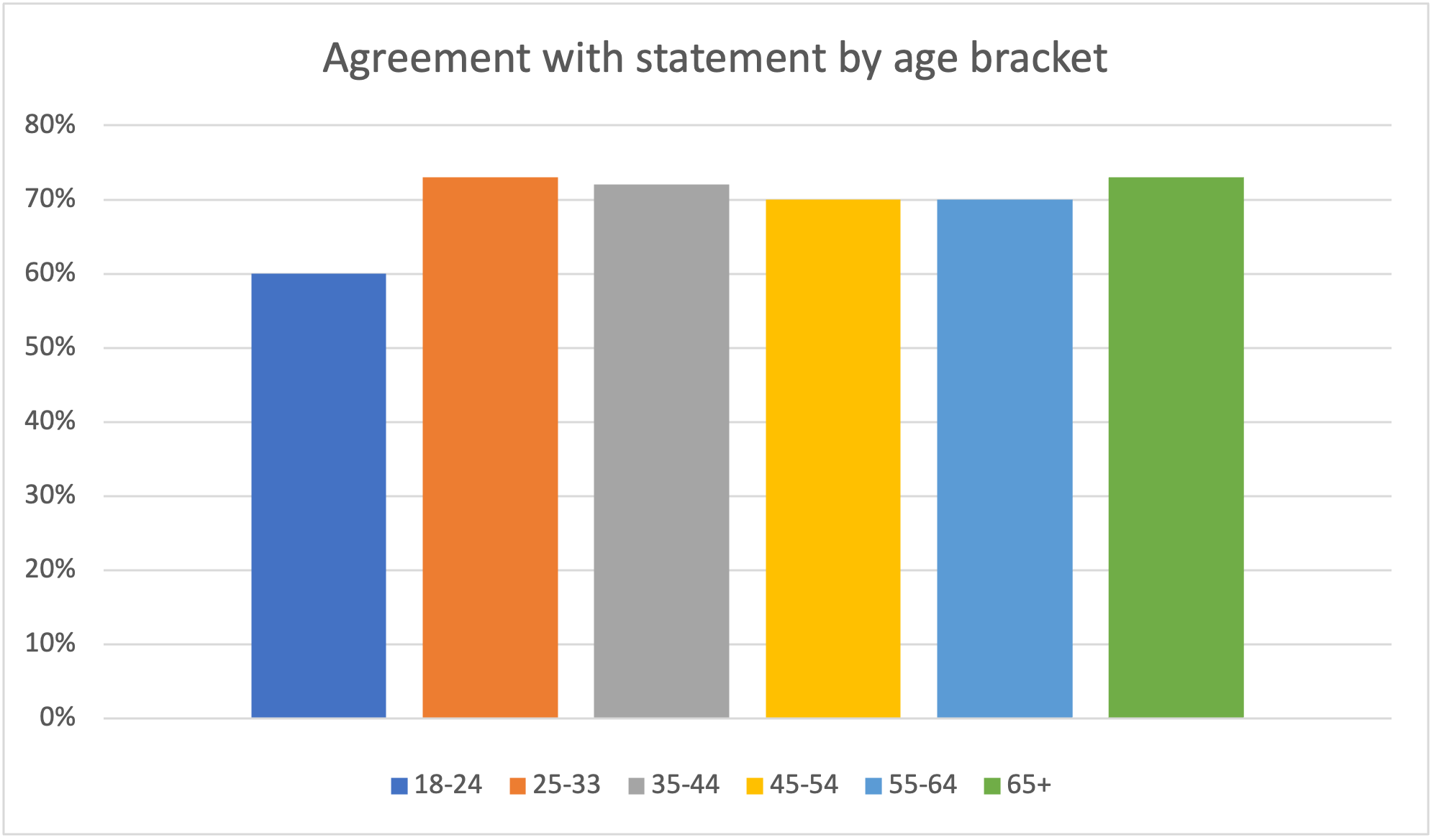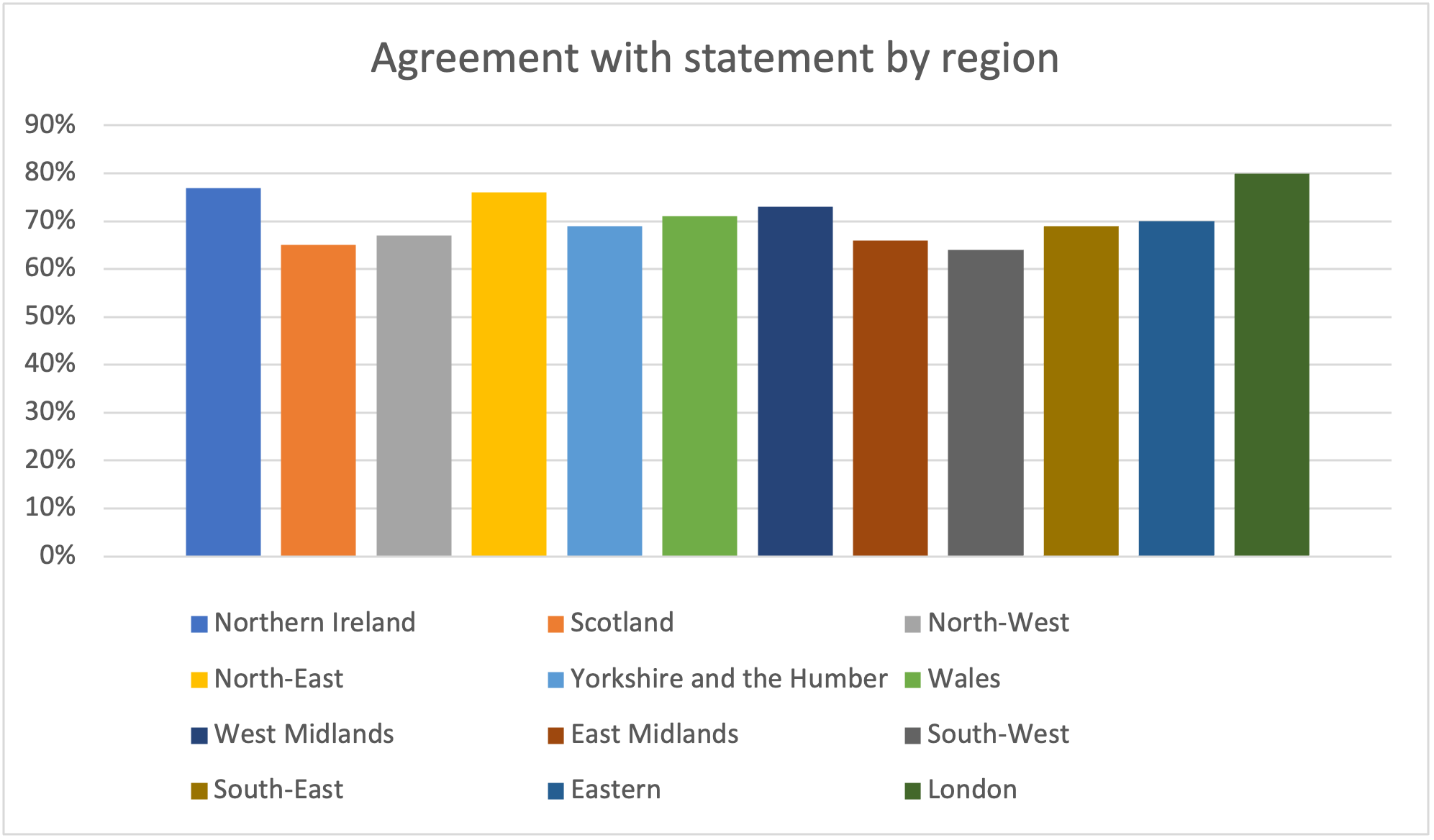
- 71% of the public agree: One-to-one tutoring plays a key role in boosting children’s motivation.
- Londoners are the most convinced: 80% believe tutoring significantly improves a child’s drive to succeed.
- Generation gap evident: Only 60% of young adults aged 18-24 feel that tutoring enhances motivation.
- Mixed regional views: Support drops to 64% in the South-West, the lowest in the UK.
No Nonsense National Survey Programme 2024-25; levels of agreement to the following statement:
‘One-to-one tutoring usually helps to significantly improve a child’s motivation.’
NATIONAL FINDINGS
71% of respondents agreed that one-to-one tutoring usually helps to significantly improve a child’s motivation.
This is of little surprise.
A good tutor has the potential to not only provide academic support, but also mental support and encouragement to their student.[1]
This helps to develop a sense of self-belief in students, which drives motivation as it permits them to believe that anything is achievable and within their grasp.[2]
Through methods and styles such as positive affirmations and firm leadership, a tutor can stimulate motivation in their student, which improves students’ motivational-affective outcomes as the tutor is supporting their needs.[3]
Several studies have shown that students’ academic interest is closely linked with their intrinsic motivation for a subject.[4]
Indeed, a study on Grade 5 to 11 students showed that students who receive private tutoring displayed an improvement in school marks and motivation.[5]
This helps to explain why over 7/10 people on average in the UK believe that one-to-one tutoring usually helps to significantly improve a child’s motivation.
AGE VARIATIONS
The level of agreement was consistently high with a small range between 70-73% for all respondents aged 25 and over. However, the lowest level of agreement was noticeably lower, at just 60% for those aged 18-24.
However, the lowest level of agreement was noticeably lower, at just 60% for those aged 18-24.
This might be because 18-24-year olds are in a very transitionary stage of life, especially where financial independence is important, and might not see the comparatively high cost of private tutoring necessarily justifying its potential impact on a student’s motivation.[6]
Furthermore, 18-24-year-olds might view collaborative learning environments, something they will have had greater exposure to than their older counterparts, as a more effective manner for encouraging motivation, rather than isolated one-to-one tutoring sessions.[7]
Finally, 18-24-year-olds are far less likely to have children of their own and therefore might be less likely to see how beneficial tutoring is for improving a child’s motivation.
REGIONAL VARIATIONS
The highest level of agreement was from respondents in London at 80%.
This might not be a surprise as there is the greatest provision of private tutors in the capital due to wealth disparity and population density, with statistics showing that on average, over 10% more schoolchildren in London have experienced some form of private tutoring than any other area of the UK.[8]

Conversely, the lowest level of agreement from respondents was in the South-West, at 64%.
This might be explained by the coastal and rural demographics of the South-West.
This area of the UK often has smaller, community-focused schools where individualised attention might be more accessible due to smaller class sizes.
With this in mind, respondents might be less likely to acknowledge the impact of one-to-one tutoring on a child’s motivation.
References:
[2] Ibid.
[3] Ibid.
[8] Private Tuition and Social Mobility Report (Sutton Trust)
